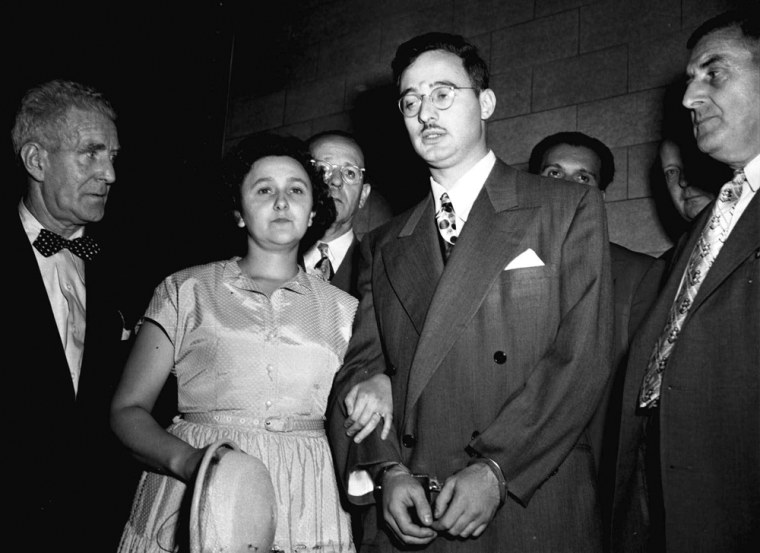After years of professing their parents' innocence, the sons of Julius and Ethel Rosenberg are acknowledging that their father was a spy.
The about-face came after their father's co-defendant, Morton Sobell, admitted for the first time that he and Julius Rosenberg stole non-atomic military and industrial secrets for the Soviet Union.
The Rosenbergs were executed in 1953 for passing atomic secrets to the Soviet Union. Since then, decoded Soviet cables have appeared to confirm that Julius was a spy, but doubts have remained about Ethel's involvement.
The 91-year-old Sobell, who was convicted with the Rosenbergs on espionage charges in 1951 and released from prison in 1969, had maintained his innocence until last week, when he told The New York Times he turned over military secrets to the Soviets during World War II.
"I don't have any reason to doubt Morty," the Rosenbergs' son Michael Meeropol told the Times in Wednesday's editions.
Long denial of guilt
Michael was 10 years old when his parents were executed. His brother, Robert, was 6. After living with a series of relatives, the boys were eventually adopted.
As adults, they sued the government for documents relating to their parents' case and worked to establish their innocence.
In separate interviews with the Times since Sobell's confession, the brothers said they concluded they could no longer claim their father was innocent of an espionage conspiracy. They still say, however, that any atomic bomb information he gave the Russians was at best superfluous, that the case against their parents was flawed and that neither deserved the death penalty.
Along with Sobell and others, both brothers still have doubts about the government's case against their mother.
Sobell told the Times last week he believes Ethel Rosenberg was aware of espionage by her husband but didn't actively participate. "What was she guilty of? Of being Julius' wife," he said.
Michael Meeropol, an economics professor at Western New England College in Springfield, Mass., told the paper he and his brother had believed their parents were framed but also were willing to follow the facts wherever they led.
"We believed they were innocent and we tried to prove them innocent," he said. "But I remember saying to myself in late 1975, maybe a little later, that whatever happens, it doesn't change me. We really meant it, that the truth is more important than our political position."
Tipping the balance
Robert Meeropol, a lawyer who runs the Rosenberg Fund for Children, which advocates on behalf of young people whose parents have suffered because of their progressive politics, said he, too, was willing to admit that he and his brother were wrong.
"I had considered that a real possibility for some time," Robert Meeropol said, "and this tips the balance."
The brothers were asked whether they felt betrayed by their parents, who had proclaimed their innocence until the very end.
"I don't feel that way," Robert told the paper. "I can understand that they didn't do the thing they were being killed for. The grand jury testimony taught me more about my parents' social circle. It's a description of a whole bunch of 20-somethings, people who came out of the Depression, not only survived but went to the top of their class and they thought they could change the world. They were going to do what they could to make their mark. Until it all came crashing down."
